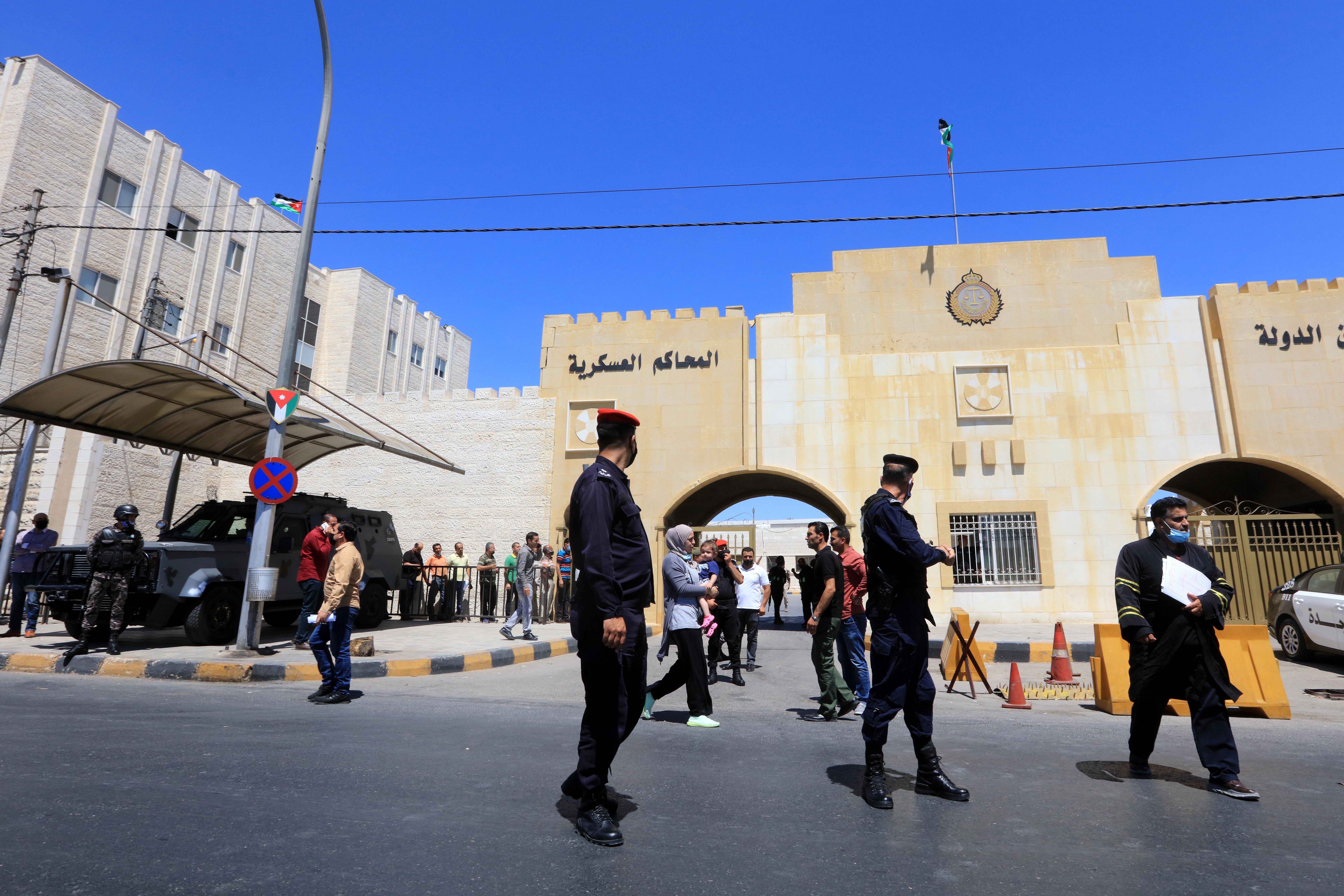How the Jordan coup revealed the limits of Saudi power
What has happened shows how dynamics in the region are changing and that Jordan is willing to push back against the big players, writes diplomatic editor Kim Sengupta

The imprisonment in Jordan of the former chief of the royal court and a cousin of King Abdullah, with sentences of 15 years each on charges of sedition, is a milestone with significant impact both in the country and abroad.
Bassem Awadallah and Sharif Hassan bin Zaid were found guilty after a secret trial in which they were accused of conspiring with foreign powers and Jordanian tribal elders to carry out a coup and put the king’s half-brother, Prince Hamzah bin Hussein, on the throne.
Hamzah was not charged and the judges refused repeated requests by the defence that he appear in court as a witness. The palace announced that the prince was being dealt with “within the framework of the Hashemite family”. The king subsequently declared that Hamzah was “with his family in his palace, under my care”.
Both men had pleaded not guilty and the verdict came amid accusations of a miscarriage of justice. A US-based lawyer for Awadallah, who is a dual Jordanian-American citizen, claimed that the authorities had tortured his client, including with electric shocks, and rushed through the proceedings in just six sessions to arrive at the guilty verdict.
Jordanian officials denied the allegations and pointed out that they had only been made as the case came towards its close.
There was some initial surprise among many diplomats and politicians that Awadallah was being tried at all. The former finance minister holds dual Saudi nationality as well and is an economic adviser to the Saudi crown prince, Mohammed bin Salman (MBS). His network of influential international connections also includes the UAE’s crown prince and de facto ruler, Mohammed bin Zayed.
The Saudi connection is a key part of the allegations surrounding the coup. Hamzah, according to the prosecution, asked Awadallah whether he would get Saudi support if he went ahead with the plot. The deputy prime minister, Ayman Safadi, claimed that the prince had been liaising with some “foreign entities”. The Saudi government denies that it was involved in the attempted coup.
It has been alleged that Riyadh wanted proceedings against Awadallah dropped, and senior Saudi figures, including foreign minister Faisal bin Farhan, the head of the country’s intelligence services and members of the entourage of the Saudi crown prince, visited Amman to persuade the Jordanians to let Awadallah return with them. At one point, it is claimed, the Saudis refused to leave Amman until Awadallah was on the flight with them.
Although the Jordanians rebuffed the Saudis over the trial, one scenario presented by some in Jordan is that Awadallah will be released after serving a part of his sentence and then exiled from Jordan.
Saudi Arabia would be the obvious destination, but Britain is also seen as a possibility. Awadallah, according to the records of Companies House in London, has extensive partnerships with Saudi businessmen in the Arab National Bank, with a senior position in its UK branch.
Jordanian resistance to extracting Awadallah was believed to have been greatly bolstered by American support. William Burns, the head of the CIA, asked the White House to intervene, according to diplomatic and security sources. President Biden called King Abdullah to offer his support during the visit of the intelligence chief from Riyadh. The CIA refused to comment on the claim of its involvement.
The Jordanian king, the first Arab leader to be hosted by Biden, is due to arrive in Washington at the end of the week, with a meeting with Biden on Monday. The White House said in a statement that the visit would be “an opportunity to discuss the many challenges facing the Middle East and showcase Jordan’s leadership role in promoting peace and stability in the region”.
Washington’s role in what has unfolded is seen as an example of how much the realpolitik of the region has changed since the US election. It is highly unlikely that the Jordanians would have received such support from the Trump administration with its sweeping support for the Saudis.
There was also animosity towards King Abdullah within the Trump camp over Jared Kushner’s supposed “deal of the century”. Donald Trump’s son-in-law had cultivated a friendship with MBS and expected Saudi support for his proposed agreement between Israel and the Palestinians. He had also gained the backing of the UAE.
Abdullah, with a large Palestinian population in Jordan, had raised grave doubts about the viability of the American plan. It would, the Jordanians held, scupper any chance of an independent Palestinian state as agreed in its own peace agreement with Israel in 1994.
The Hashemites, the royal family of Jordan, have the custodianship of the Islamic and Christian holy sites of Jerusalem, and Abdullah had stated repeatedly that Jordan would not accept changes to the legal and historical status of Jerusalem that the Israelis were trying to enforce. The stance of Abdullah led to him being sidelined by Kushner, a major problem for Jordan as long as Trump was in power.
A former senior British diplomat who had served in a number of states in the Middle-East stated: “If what we are hearing is true, there is a definite feeling that the neighbourhood is changing. What has happened has shown that countries like Jordan are now more prepared to push back against pressure from big players like the Saudis. They have done this, of course, we have to bear in mind, with the insurance of the backing of a bigger player, the US.”
Subscribe to Independent Premium to bookmark this article
Want to bookmark your favourite articles and stories to read or reference later? Start your Independent Premium subscription today.

Join our commenting forum
Join thought-provoking conversations, follow other Independent readers and see their replies